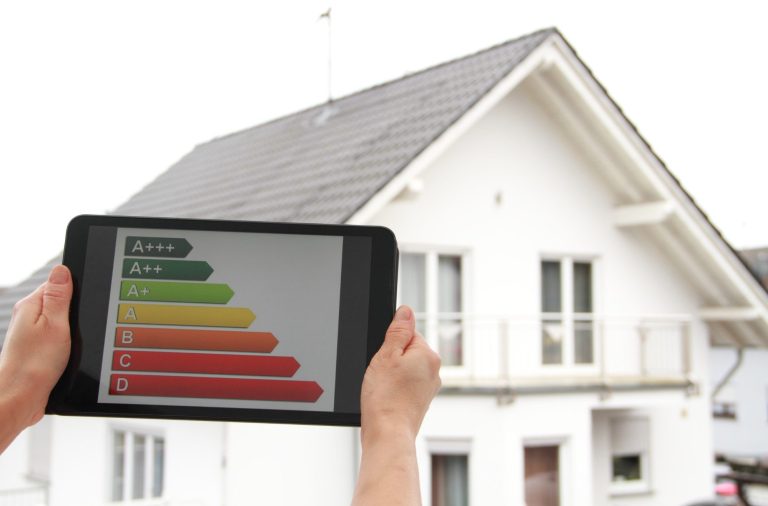ENERGY PERFORMANCE CERTIFICATES (EPC)
DOMESTIC ENERGY PERFORMANCE CERTIFICATES (EPC)
A building's energy efficiency is described in an Energy Performance Certificate (EPC), a document.
In Scotland, an EPC is required if you are renting out or selling a house. According to the European Building Directive, it is unlawful to sell or rent out a property without one. For a period of ten years, your Energy Performance Certificate will be valid. See our EPC FAQs section below for additional details on EPC requirements.

Why do you need it?
All residential properties in Scotland are obligated to have an EPC in place prior to a new tenancy or sale under the European Building Directive. See our FAQs on Scottish EPC legislation for more details.
HOW DOES THIS SERVICE WORK?
Contact us via the website to request a quote for your Domestic EPC. We will be in touch by email to confirm any details and quotation, and to organise a time that works for our Domestic Energy Assessor to visit your property.
During the assessment we will take pictures and evaluate the property, such as the building's features, lighting, heating, windows, and layout. We will use this information to compile your EPC report and you will receive this by email within a few days of our visit.

BOOK ONLINE

APPOINTMENT

ASSESSOR VISIT

REPORT DELIVERY
Call us today on 07983331501 to arrange a visit from our accredited Domestic EPCs assessors
WHY CHOOSE ARRAN PROPERTY CERTIFICATES?
All of our staff live on the Arran, which means we can offer competitive prices and efficient turnaround across the whole island. We can also offer discounts for multiple services and landlord packages.
Our assessors are all City & Guilds qualified, accredited through Elmhurst Energy, and fully insured for all services.

COMPETITIVE

PROFESSIONAL

EFFICIENT

LOCAL

DOMESTIC EPCs - FAQs
What is an EPC?
An Energy Performance Certificate (EPC) is a document that details a building's energy efficiency based on the uniform way that the building is used. Ratings for carbon dioxide (CO2) are presented in bandings from A to G, with A indicating the least polluting levels.
The amount of CO2 that is predicted to be released from the building is the primary focus of the certificate. The performance of the building is evaluated against current building standards, and cost-effective improvements are proposed. The certificate must be affixed to the premises and will remain valid for 10 years unless changes are made.





